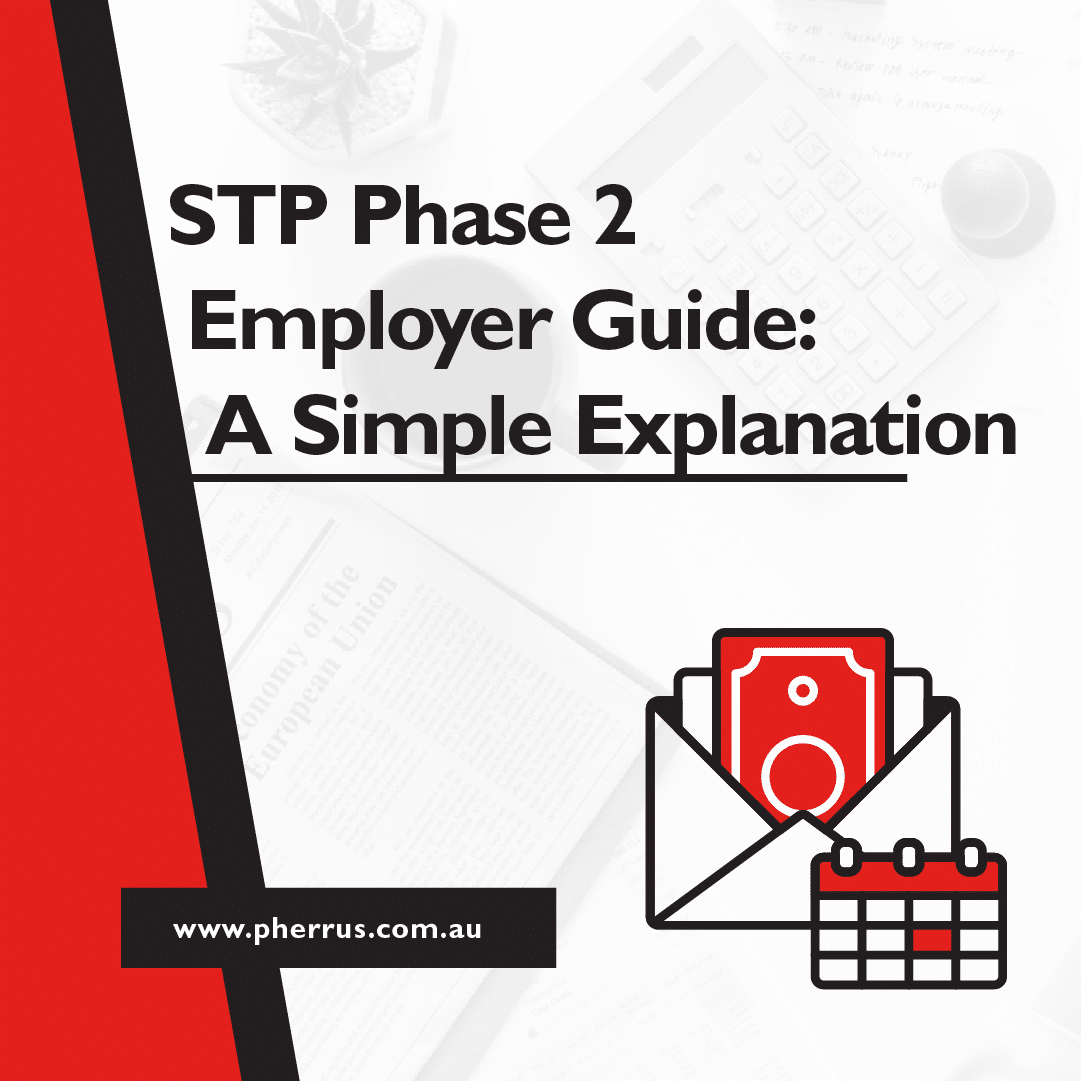The year is going so quickly that June 30th will be here before you know it. And, June 30th means one thing – end of the financial year (EOFY). To ensure you meet the deadline, it’s time to get your personal and business finances in order. Thankfully, by following some simple tips, preparing for tax time has never been easier. Here are 10 ways to prepare for EOFY.
Manage deductions
An important part of your tax planning is making sure you receive the correct deductions for business expenses. For instance, many small businesses are utilising the Federal Government’s Instant Asset Write-Off concession. As a result of COVID-19, the threshold has been increased from $30,000 to $150,000 for the 2019/2020 financial year.
So, it’s the perfect time to purchase new equipment (i.e. furniture, office equipment, tools, vehicles, etc.) you may need in the coming year. The governments original plan noted, whatever you do buy for your business must be installed and working by June 30th 2020. This has been extended to December 2020, although it is still wise to work with what you can get sooner rather than later. The reason being that tax won’t be deducted if delivery or payment is made after this deadline.
Claim your deductions
The COVID-19 crisis has forced many of us to work from home. What you may not know is you can claim tax deductions for remote work. The ATO is currently offering a flat rate of 80 cents each hour. And, during the pandemic, you are not required to keep any receipts. However, you do need to keep an accurate log of the hours you have worked. If your partner also works at home, you can both claim this deduction.
Remember, you may be eligible to claim more if you add up your total phone and internet usage, office furniture, computers (i.e. tablets, iPads and more) and other bills (such as electricity).
Be aware, however, that you cannot claim interest paid on your home loan or Council Rates, as this can lead to CGT problems.
Claim government super contributions
The Federal Government will contribute to your superannuation payments if you meet any of the following conditions:
- Generate a low income
- Earn at least 10% of your total income through employment or through running a business
- Make “non-concessional contributions” to your superannuation account
If any of the above situations apply to you, the government will make a co-contribution to your super of up to $500.
Increase your super contributions
If you’re able, a smart strategy is making the maximum super contribution prior to June 30th. The key advantage being these contributions are taxed between 15% and 30% (in comparison to general income tax rates of 32.5% and 47%). Also, you’ll be building a valuable nest egg for your future.
Now, this valuable investment strategy is open to everyone. Previously, only the self-employed or people earning income from passive sources could make super contributions at EOFY. However, now any employee can access this strategy to claim tax deductions.
Make a super contribution for your partner
If your spouse earns under $37,000 per year, you can make a superannuation contribution on their behalf. You can add up to $3,000 to their super fund. If you do so, you’ll receive a rebate of up to $540.
Convert concessional contributions
You can make “concessional contributions” to your superannuation using your pre-tax income. If you use the PAYG system, this must be done through a Salary Sacrifice arrangement.
Please note, however, it is too late to start making concessional super contributions for the 2020 financial year. However, if you haven’t been using the Salary Sacrifice system, we recommend starting from July 1st. This will ensure you can claim this valuable deduction the following tax year.
However, there is better news for self-employed people. If you still haven’t made concessional contributions, you do have time. Remember, though, that these contributions can take a few days to process. So, they must be made before June 28th to be included in this year’s tax return.
The contributions you make to your super account will be taxed at a rate of 15%. Despite this, the entire amount is instantly tax-deductible. This is particularly useful if you choose to make a large contribution each year.
Simplify accounting with online tools
Are you looking for a way to make EOFY and business activity statement (BAS) reporting time easier? Well, you’re in luck. By separating your personal and business banking, tax time will be much less stressful. Separating these helps you keep all your business activity in one spot, and minimises the risk of accidentally claiming a deduction which isn’t directly related to your business.
And, keeping track of business and personal expenses is even simpler with online banking tools. Your bank may provide such tools as :
3rd party access to accounts – This is a handy way to share your company’s cash flow details with your accountant or bookkeeper.
Online invoicing – This helps you reconcile invoices and easily prepare financial statements and returns.
Bank feeds – This connects your business bank account(s) directly to your accounting software (i.e. Xero, MYOB and QuickBooks).
Eliminate bad debt
This is a useful strategy for all small business owners. By writing off your bad business debts, you are able to claim a GST refund. However, before writing off all your company’s GST, perhaps think about offering clients a discount if they pay you before the EOFY deadline.
Is your business registered for GST? If so, you can place any bad debt in either your June BAS statement or your annual GST return. By doing so, you will receive a refund on any GST which has been paid during that previous financial year.
Ensure your paperwork is up to date
The key to a stress-free tax season is keeping all your business paperwork in order. The essential records you need to keep and show to your bookkeeper or accountant include :
- Sale and purchase receipts
- BAS and GST returns
- Records, such as tax returns, BAS statements and super contributions made for employees
Maintain online banking records
The key to ensuring a smooth EOFY process is making life easier for your bookkeeper or accountant. A great way to do this is by supplying your online bank statement. At the end of each year, we recommend printing your bank statement and filing it with your tax information. These statements should show the current balances of your investment and business loans.
If you don’t do this, your accountant might need you to manually determine what these balances were on June 30th. Make things much less complicated and simply print your business bank statement.
Keep a vehicle logbook
It’s very important for small businesses to maintain an accurate vehicle logbook for a minimum of three months. This logbook must start on or before the 30th of June of that year. This record needs to contain your odometer reading as of June 30th 2020, along with all invoices and receipts relating to any expenses for your work vehicle(s).
To make keeping an accurate record simpler, there is a wide range of apps which can organise everything relating to your business’ motor vehicle expenses.
Check eligibility for any COVID relief and impact
The COVID-19 crisis has impacted businesses across every sector. And, even months in, we are only just realising the true effect it is having on small businesses. To protect business owners in this fluid situation, the government is offering employees the JobKeeper payment. However, this payment is not permanent.
So, to keep up with the latest changes and how they will impact your business, visit the ATO website and the Pherrus blog. There, you will find the latest information on how COVID-19 business relief incentives will impact your tax and superannuation.
Pre-pay your business expenses>
With the COVID-19 crisis impacting almost every aspect of business, business owners are searching for ways to save money. Fortunately, there is an easy way for you to cut down costs during tax time. Simply consider whether there are any upcoming bills or expenses which can be pre-paid before the financial year draws to a close.
Are you thinking of upgrading your office equipment to the value of $300 or less (i.e. a new printer, monitor or desk)? If so, purchase it before June 30th. This way, you can claim a deduction for the 2019/2020 tax year. Another valuable deduction you can claim is subscriptions to business journals or magazines.
Sort out your finances
As a business owner, this is absolutely crucial. However, we also know that your life is extremely busy.
Take the headache out of EOFY. For more tax advice, call or email the friendly team at Pherrus Financial Services today.




